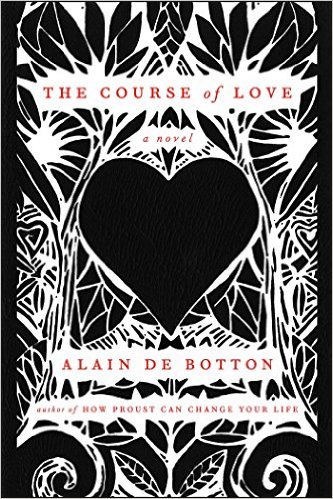
Alain de Botton is the author of The Course of Love.
To fall in love with someone feels like such a personal and spontaneous process, it can sound strange—and even rather insulting—to suggest that something else (we might call it society or culture) may be playing a covert, critical role in governing our relationships in their most intimate moments.
Yet the history of humanity shows us so many varied approaches to love, so many different assumptions about how couples are supposed to get together and so many distinctive ways of interpreting feelings, we should perhaps accept with a degree of grace that the way we go about our relationships must in practice owe rather a lot to the prevailing environment beyond our bedrooms. Our loves unfold against a cultural backdrop that creates a powerful sense of what is “normal” in love. It subtly directs us where we should place our emotional emphases; it teaches us what to value, how to approach conflicts, what to get excited about, when to tolerate and what we can be legitimately incensed by. Love has a history, and we ride—sometimes rather helplessly—on its currents.
Since around 1750, we have been living in a highly distinctive era in the history of love that we can call Romanticism. Romanticism emerged as an ideology in Europe in the mid-18th century in the minds of poets, artists and philosophers, and it has now conquered the world, powerfully (yet always quietly) determining how a shopkeeper’s son in Yokohama will approach a first date, how a scriptwriter in Hollywood will shape the ending of a film, or when a middle-aged woman in Buenos Aires might decide to call it a day with her civil servant husband of 20 years.
No single relationship ever follows the Romantic template exactly, but its broad outlines are frequently present nevertheless—and might be summed up as follows:
Romanticism is deeply hopeful about marriage. It tells us that a long-term marriage can have all the excitement of a love affair. The feelings of love that we are familiar with at the start of a relationship are expected to prevail over a life-time. Romanticism took marriage (hitherto seen as a practical and emotionally temperate union) and fused it together with the passionate love story to create a unique proposition: the life-long passionate love marriage.
Romanticism unites love and sex. Previously, people had imagined that they could have sex with characters they didn’t love, and that they could love someone without having extraordinary sex with them. Romanticism elevated sex to the supreme expression of love. Frequent, mutually satisfying sex became the bellwether of the health of any relationship. Without necessarily meaning to, Romanticism made infrequent sex and adultery into catastrophes.
Romanticism proposes that true love must mean an end to all loneliness. The right partner would, it promised, understand us entirely, possibly without needing to speak to us. They would intuit our souls. (Romantics put a special premium on the idea that our partner might understand us without words.)
Romanticism believes that choosing a partner should be about letting oneself be guided by feelings, rather than practical considerations. For most of recorded history, people had fallen into relationships and married for logical pragmatic sorts of reasons. For Romanticism, the marriage of reason was not reasonable at all, which is why what it replaced it with—the marriage of feeling—has largely been spared the need to account for itself. What matters is that two people wish desperately that it happen, are drawn to one another by an overwhelming instinct and know in their hearts that it is right.
Romanticism has a powerful disdain for practicalities and money. Nowadays, under the influence of Romanticism, we don’t like such elements to be at the forefront of the mind around relationships, especially in the early days. It feels cold—un-Romantic—to say you know you’re with the right person because you make an excellent financial fit or because you gel over things like bathroom etiquette and attitudes to punctuality.
Romanticism believes that true love should involve delighting in a lover in their every aspect. True love is synonymous with accepting everything about someone. The idea that one’s partner (or oneself) may need to change is taken to be a sign that the relationship is on the rocks.

This template of love is a historical creation. We can at this point state boldly: Romanticism has been a disaster for love. It is an intellectual and spiritual movement which has had a devastating impact on the ability of ordinary people to lead successful emotional lives. The salvation of love lies in overcoming a succession of errors within Romanticism. Our strongest cultural voices have—to our huge cost—set us up with the wrong expectations. They’ve highlighted emotions that don’t tell us very much that is useful about how to make relationships work, while drawing attention away from others that offer more constructive guidance. We deserve sympathy. We’re surrounded by a culture that offers a well-meaning but fatally skewed ideal of how relationships might function. We’re trying to apply a very unhelpful script to a hugely tricky task.
It seems crucial to question the assumptions of the Romantic view of love—not in order to destroy love, but to save it. We need to piece together a post-Romantic theory of couples, because in order to make a relationship last, we almost have to be disloyal to many of the Romantic emotions that get us into it in the first place. The idea of being “post-Romantic” shouldn’t imply cynicism; that one has abandoned the hope of relationships ever working out well. The Post-Romantic attitude is just as ambitious about good relationships, but it has a very different sense of how to honor the hopes.
We need to replace the Romantic template with a psychologically-mature vision of love we might call Classical, which encourages in us a range of unfamiliar but hopefully effective attitudes:
Such attitudes and many more belong to a new, more hopeful future for love.
More Must-Reads from TIME
- Cybersecurity Experts Are Sounding the Alarm on DOGE
- Meet the 2025 Women of the Year
- The Harsh Truth About Disability Inclusion
- Why Do More Young Adults Have Cancer?
- Colman Domingo Leads With Radical Love
- How to Get Better at Doing Things Alone
- Michelle Zauner Stares Down the Darkness
Contact us at letters@time.com